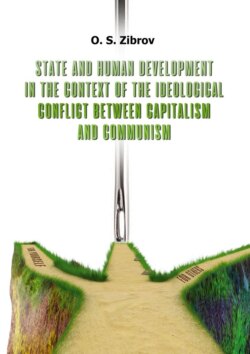State and Human Development in the Context of the Ideological Conflict between Capitalism and Communism

Реклама. ООО «ЛитРес», ИНН: 7719571260.
Оглавление
О. С. Зибров. State and Human Development in the Context of the Ideological Conflict between Capitalism and Communism
1. What disadvantages typify the previous political system?
2. What changes would allow us to improve the existing political power system?
3. Who is able to introduce changes into the existing political power system?
4. What can be done by ordinary industrial workers to exercise the power?
5. What does the change of the state system bring to human evolvement?
Отрывок из книги
1.1. Experience is not transferred. Not theoretical experience but experience as knowledge, i.e. conscious understanding of the current political processes. For most people, a theory is not enough, they need their own practical experience. This is the only way to understand mistakes and develop a deep understanding of the theory. This is precisely why the retreat of the pre-revolutionary communist generation who knew, both in theory and from their own experience, what exploitation, poverty, competition, healthcare and education inaccessibility are, turned the collapse of the USSR into just a matter of time.
1.2. Overestimated impact of economic motivations on people’s lives and disregard of other aspects. Socialism, having solved a number of economic problems, got rid of some evils and therewith gave rise to others (anger, envy, jealousy, vanity…). Human weaknesses turned into the promotion driving force.
.....
2.1.1. To add Councils (state and local) to the legislative branch of power. Such Councils should be formed by appointing deputies, elected by industrial workers for each industrial district. To authorize them to enact the statutory acts that control the relations initiated for the sake of others, as well as the relations into which subjects are forced to enter against their will: Public relations (power system, protection of citizens, state property) or external circumstances driven relations (labor, consumer relations, monopolies).
To leave under the jurisdiction of other, presently acting authorities the enactment of statutory acts that control the relations initiated for the sake of self, into which subject enter voluntarily: Civil relations (contractual relations between individuals, legal entities, individuals and legal entities, associations of legal entities, commercial activity (market), art…).
.....